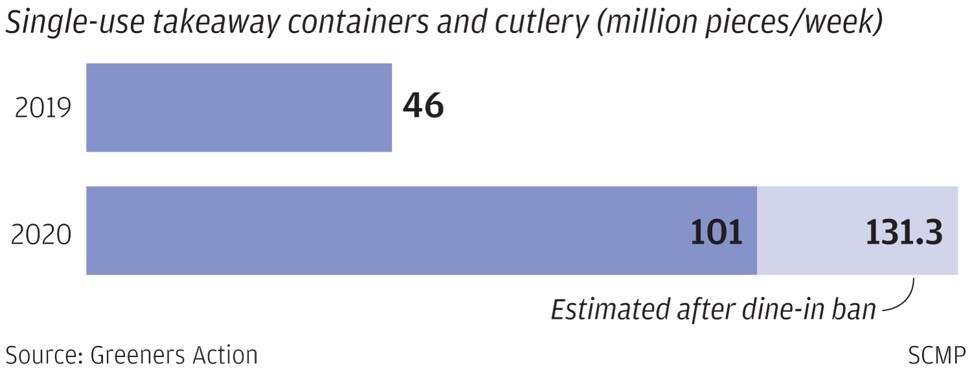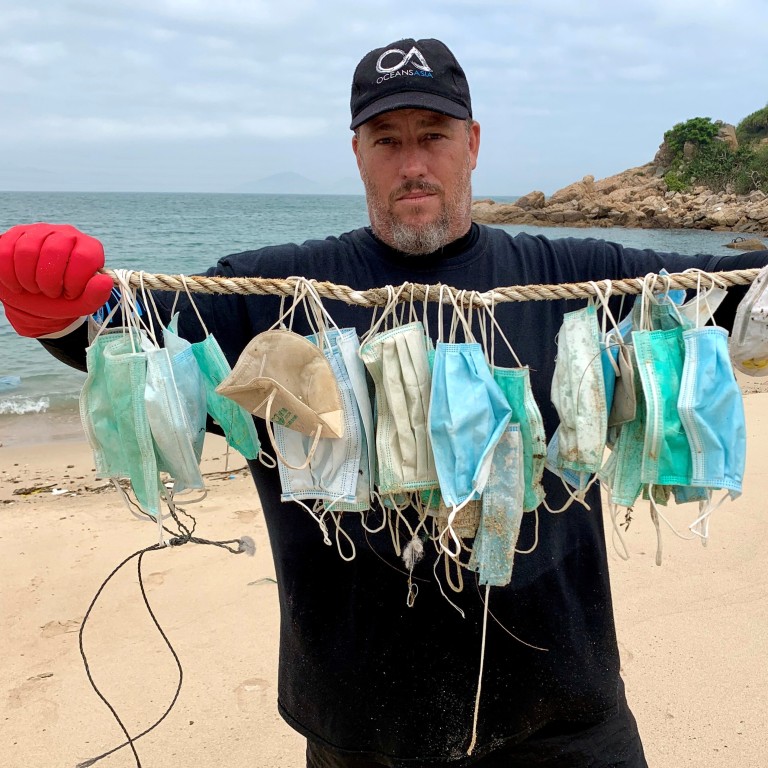
Hong Kong cleaners, green groups despair as pandemic trash piles up with disposable plastic, sanitiser bottles, masks everywhere
- Stay-at-home Hongkongers order more takeaway food, toss more garbage down the chute
- Residents urged to cut trash by taking containers to buy food, wearing reusable masks
Cleaning worker Fung Lan-ying has been working a lot harder since the pandemic began, collecting garbage from a block of public flats at a housing estate in Hong Kong’s Wong Tai Sin.
She used to gather trash that filled three or four 660-litre bins each day. Now the residents toss out enough garbage to fill 10 of the bins daily, an amount she only encountered previously on the first day of Lunar New Year.
“It’s mostly food waste and takeout boxes,” said Fung, 60, who has been collecting trash for more than 20 years.
Hong Kong’s cleaners have been dealing with an explosion of trash from homes since the Covid-19 pandemic started early this year, and stay-at-home Hongkongers have been ordering more takeaway food.
Our members have told us their workload has increased tremendously
Cleaners are collecting more plastic, including disposable single-use cutlery and food containers, as well as used masks.
Leung Tsz-yan, spokeswoman for the Cleaning Workers Union, said: “Our members have told us their workload has increased tremendously and I have seen first-hand that the amount of trash thrown out these days at housing estates has grown.
“Sometimes, the trash bags break open when they are thrown down disposal chutes from 10 to 20 floors up, and we see surgical masks, food waste and takeout boxes.”
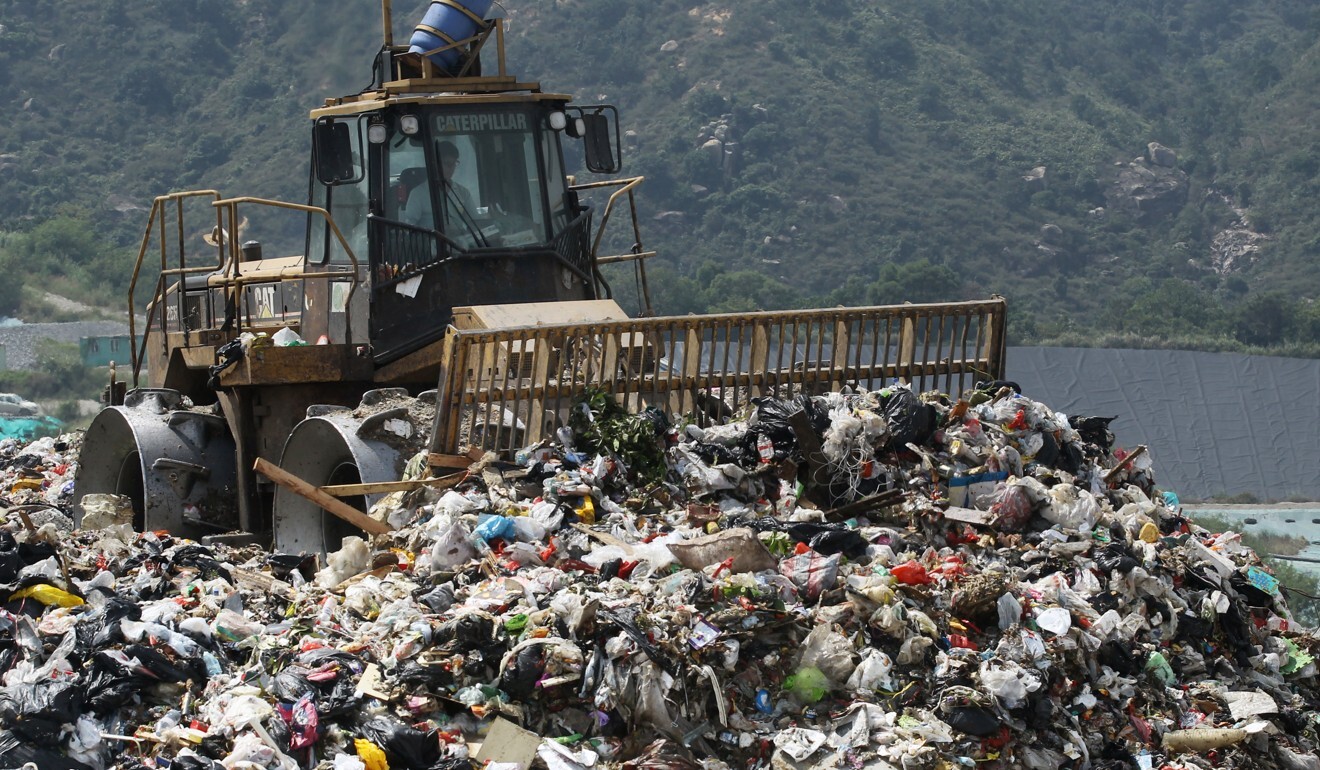
As Hong Kong battles a third wave of Covid-19 infections, the government has banned dining-in at restaurants from 6pm till 5am for a week, and the city’s health minister has said it could become a full-day ban if the outbreak worsens beyond control.
That only means Hongkongers will be eating at home a lot more again, prompting green groups and cleaners’ rights groups to worry that the waste problem will go from bad to worse.
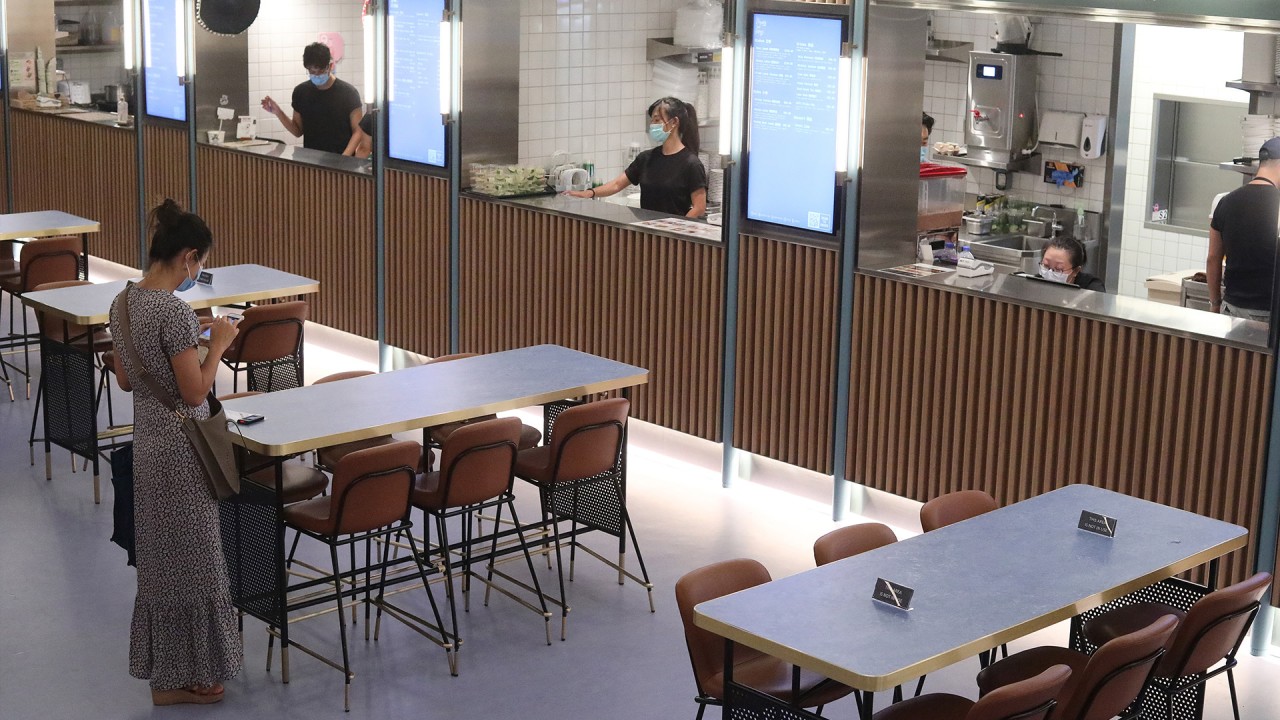
02:12
Hong Kong bans dine-in service from 6pm to 5am to contain its third wave of Covid-19 infections
The city’s waste management systems are already under strain, with the Environmental Protection Department (EPD) estimating that existing landfill sites will reach capacity this year.
The department noted, however, that the city’s overall volume of waste declined by about 6 per cent between January and May this year compared with the same period last year. This most likely reflects the sharply reduced economic activity as pandemic measures kicked in, more people worked from home and visitors stayed away.
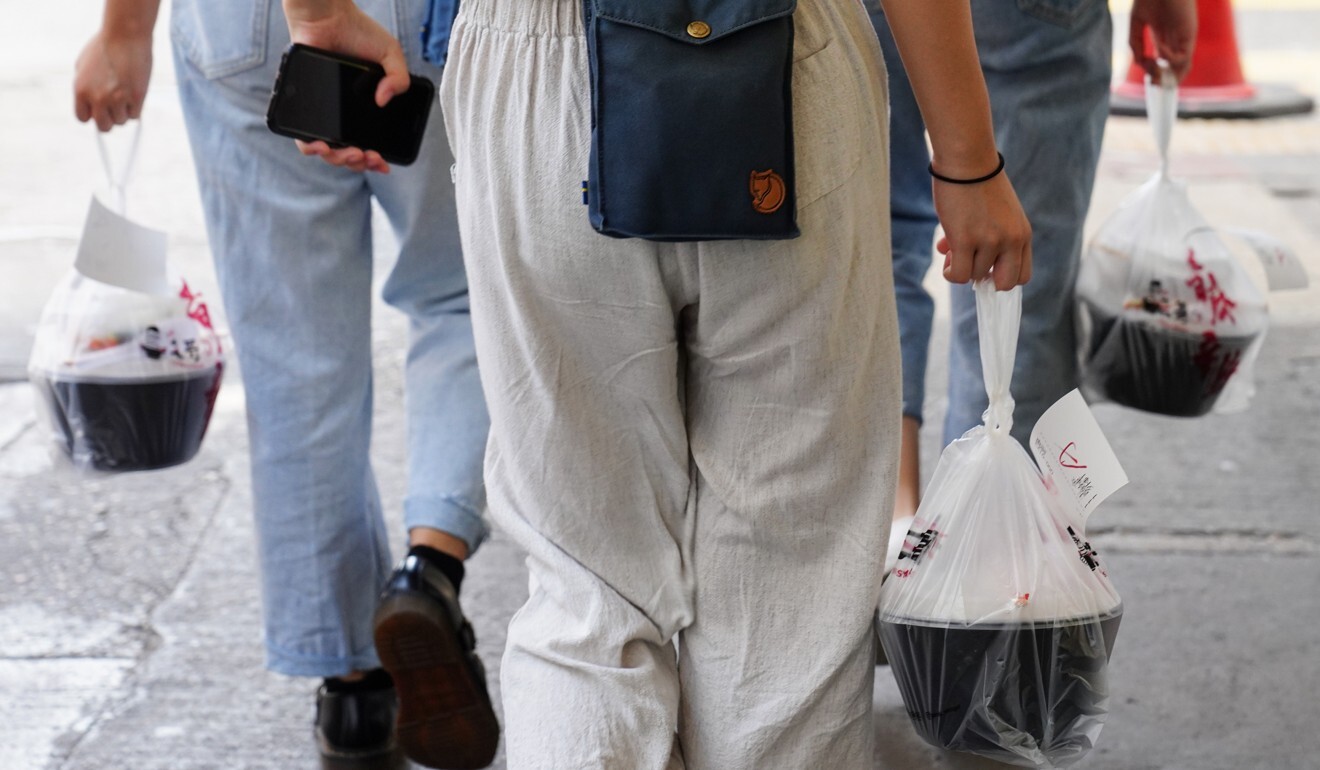
In April, a month after social-distancing measures were introduced to keep the pandemic in check, environmental concern group Greeners Action estimated that Hongkongers were dumping 101 million pieces of single-use cutlery and food containers every week.
That is more than double the 46 million pieces the group estimated was discarded per week last year.
Angus Ho Hon-wai, the group’s chief executive, expected the new evening dine-in ban on restaurants to result in more garbage from takeaway meals.
Restaurant owners agree, and say the price of disposable containers went up as food outlets rushed to stock up when the dinnertime ban was announced. One disposable cutlery wholesaler, Fever Creation Company, said it had customers doubling their orders.
Shrinking market, poor collection services have plastic recyclers struggling
In 2018, more than 11,000 tonnes of municipal solid waste was dumped into landfills every day, including more than 2,300 tonnes of waste plastics. Only 30 per cent of the total waste was recycled, of which just 7 per cent was plastic.
Last month, the government scrapped a long-delayed plan to charge for waste collection, an idea long touted by green groups as a way to encourage Hongkongers to reduce and recycle their trash.
Worried by the worsening garbage situation, Greeners Action’s Ho said the government, in imposing pandemic measures such as the dining-in ban, should also educate residents.
“Of course virus prevention is important, but when the government comes up with a policy like this, it should also encourage or educate people by telling them to bring their own containers.”
He wished Hongkongers would abandon the misconception that disposable containers or cutlery were more hygienic.
“I think many people overreacted earlier, and some restaurants even began serving customers in disposable containers when they dined in,” he said.
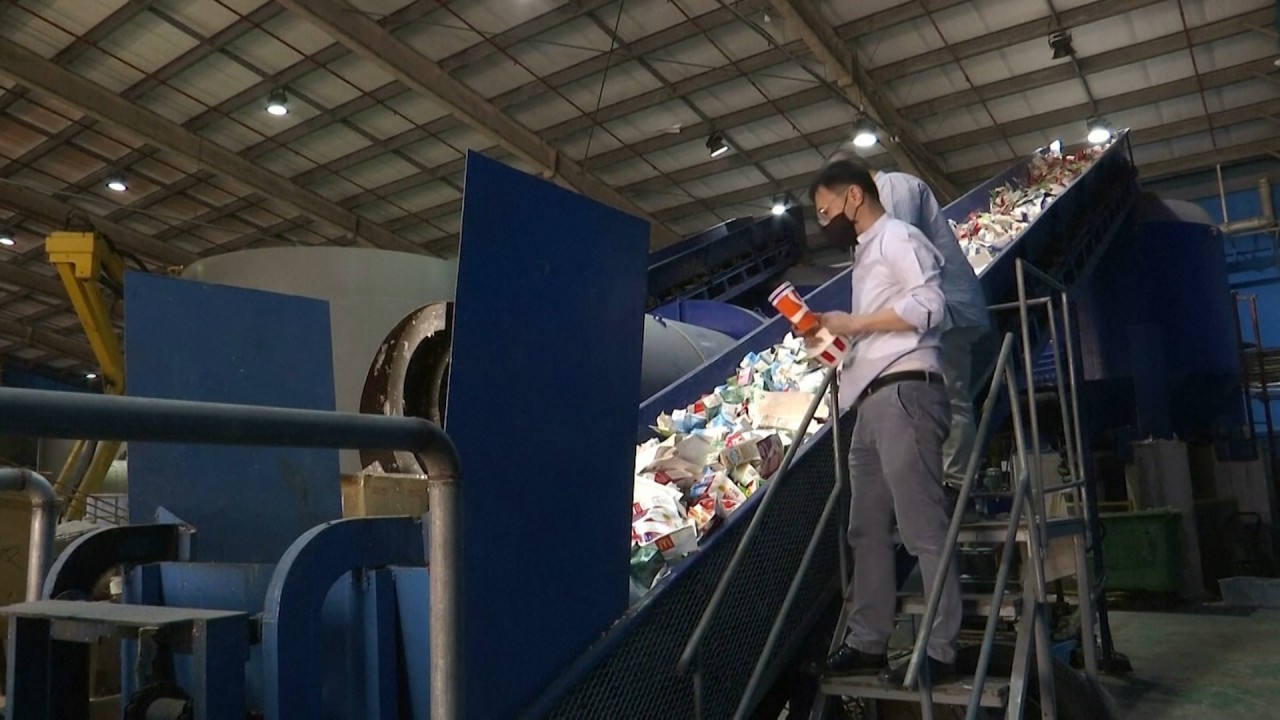
02:35
Coronavirus: rescued Hong Kong recycling plant helps city by making toilet paper
A mountain of discarded masks
The pandemic has piled disposable surgical masks and hand sanitiser bottles, both essential everyday items now, onto Hong Kong’s growing mountain of trash.
The government estimates that 10 to 15 tonnes of disposable face masks are dumped into the city’s landfills daily.
There is no estimate for the number of hand sanitiser bottles ending up in the landfills, but Cheung Tak-wing, vice-chairman of the Hong Kong General Chamber of Pharmacy, said sales have shot up at pharmacies.
“Before the pandemic, our pharmacy could not even sell one box of 24 bottles in a month,” he said. “At the peak of the outbreak we sold five to six boxes a day.”
This is not just a Hong Kong problem ... Even elsewhere, the most common disposal methods for masks are to send to landfills or burn them
Surgical masks are the more vexing problem as people need to protect themselves, but they are impossible to dispose of sustainably, Ho said.
“Governments everywhere are helpless against it,” he added.
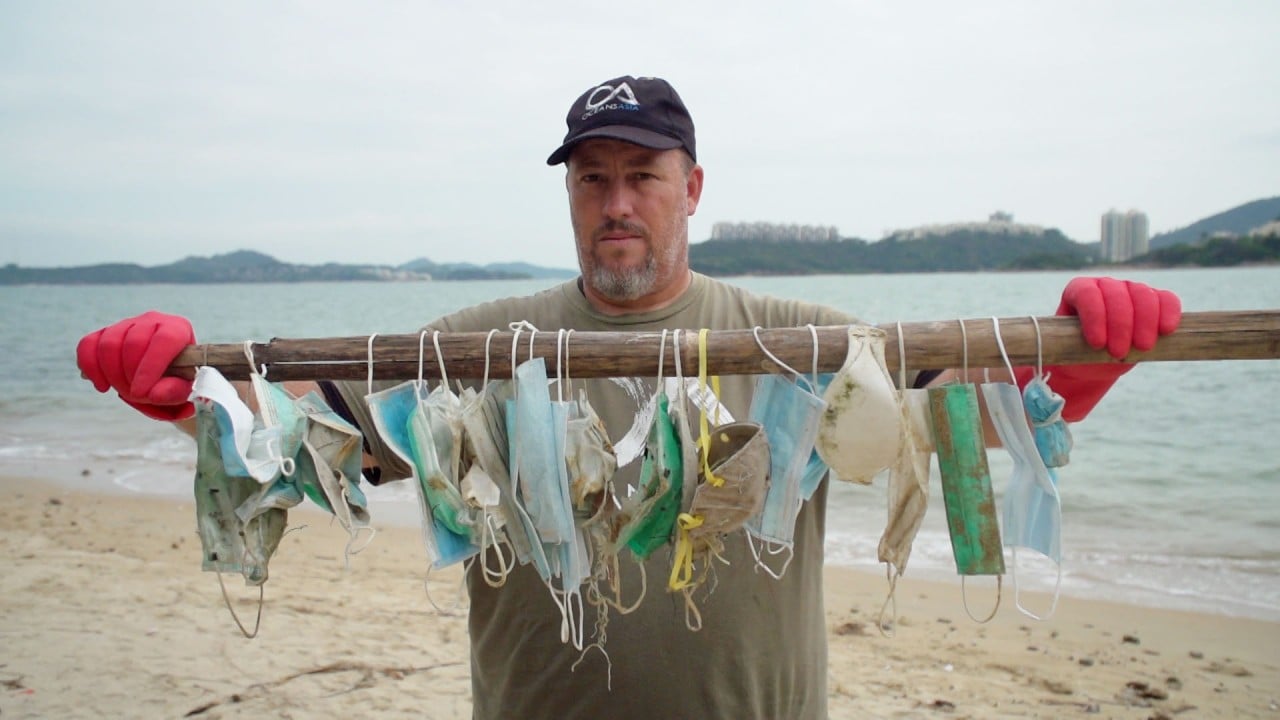
02:42
Coronavirus consequences: disposable masks latest addition to Hong Kong’s waste woes
Hahn Chu Hon-keong, director of environmental advocacy at environmental NGO The Green Earth, said masks were hard to recycle as they comprised several different types of plastic, which must be separated before they could be processed.
“This is not just a Hong Kong problem,” he said. “Even elsewhere, the most common disposal methods for masks are to send to landfills or burn them.”
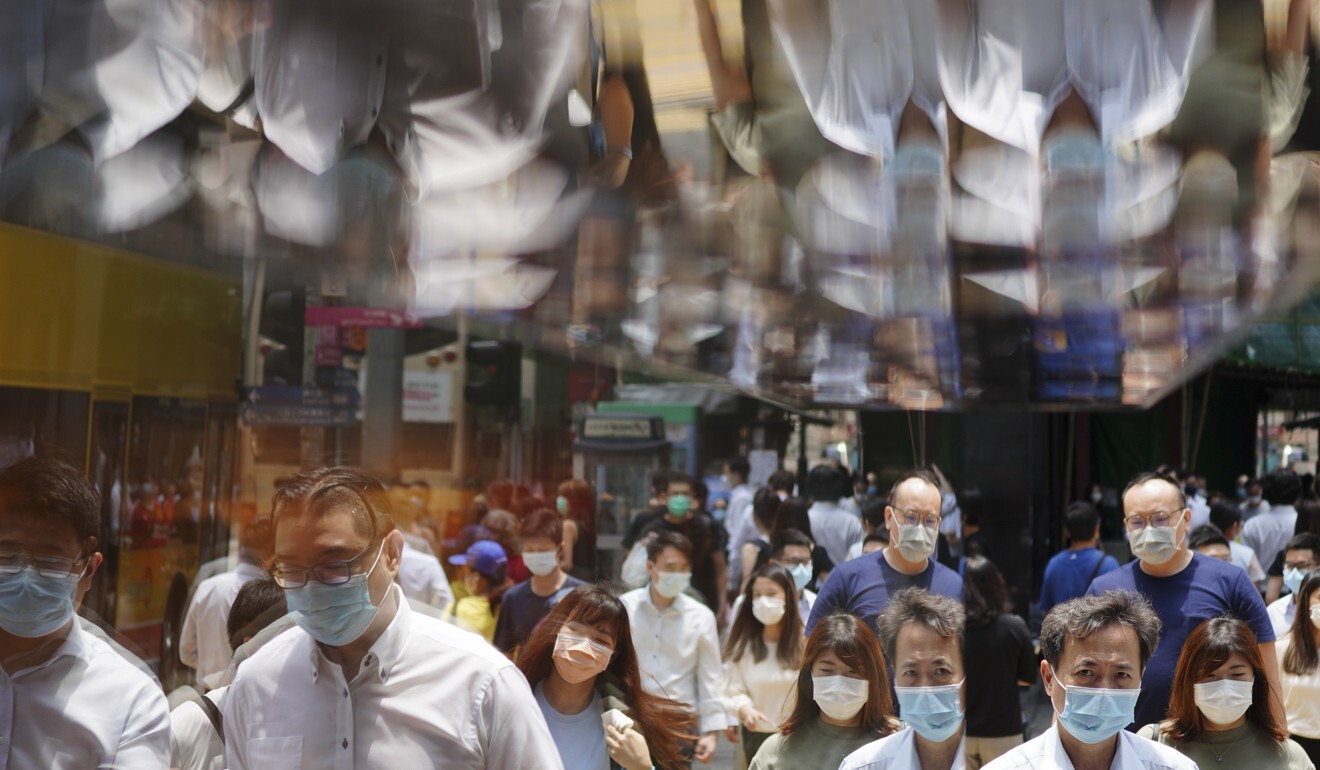
The EPD said surgical masks discarded by the public were sent with other garbage to landfills, but masks used in hospitals and quarantine centres were considered medical waste and had to be incinerated.
Union representative Leung, as well as the green groups, urged Hongkongers to wrap their used masks properly before throwing them out, to prevent loose masks from being blown off landfills and ending up in the sea.
They also said reusable masks were an environmentally friendly choice and could help reduce the amount of trash.
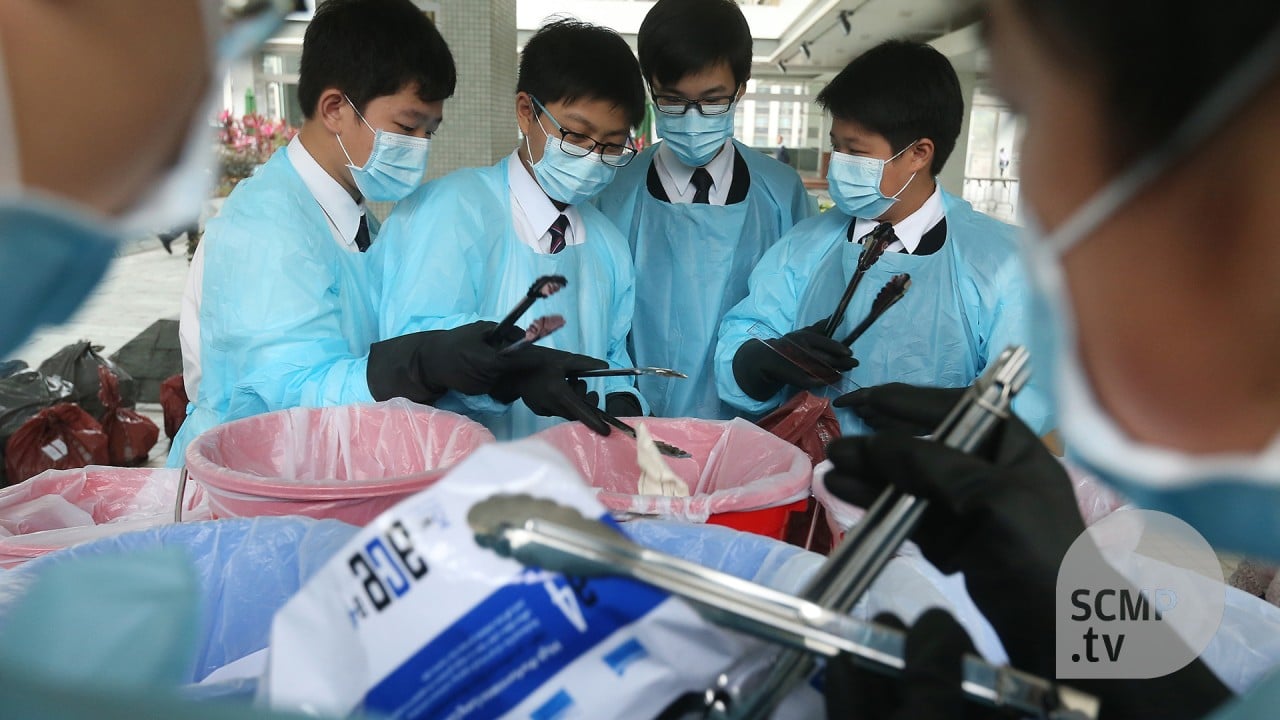
01:42
Schooled in rubbish: Hong Kong students learn the basics of recycling, re-using and reducing their garbage
Chu said: “If you are not going to a really high risk area, reusable masks are a good option.”
In May, the government began distributing free reusable masks and the EPD said they could reduce the use of disposable masks.
The green groups hope Hongkongers will appreciate the worsening state of the trash problem and see that everyone can do their part to reduce waste.
“It is possible to refill small hand sanitiser bottles from bigger ones, and bring your own reusable container when buying food,” Chu said.


